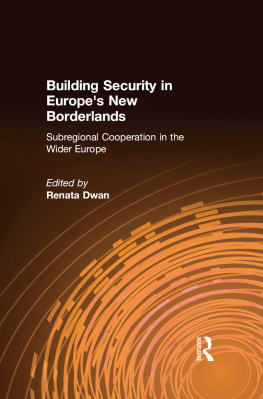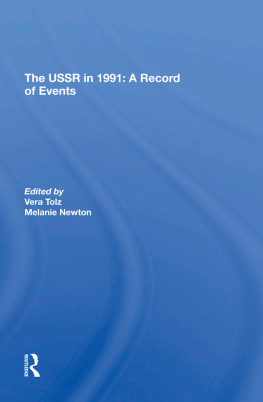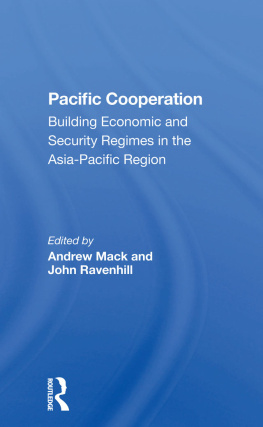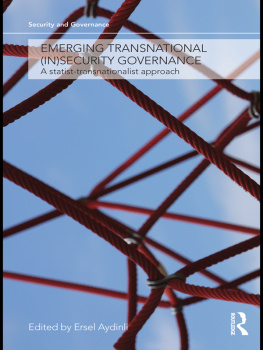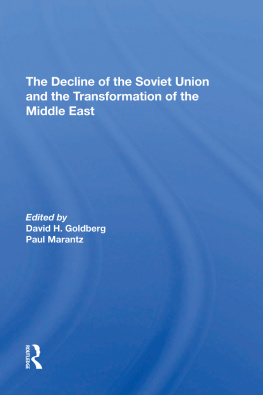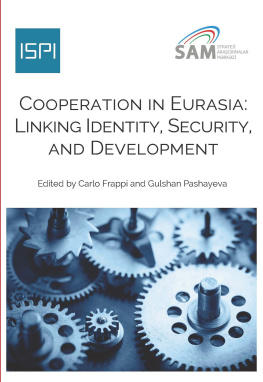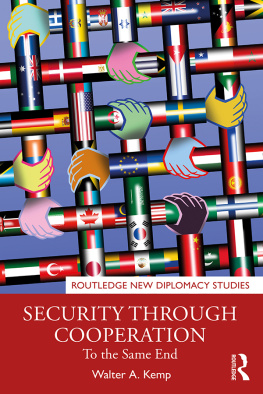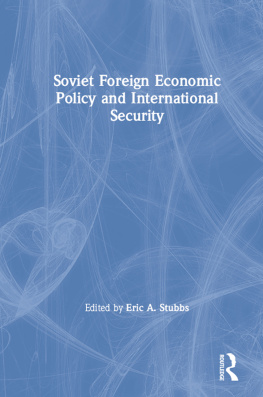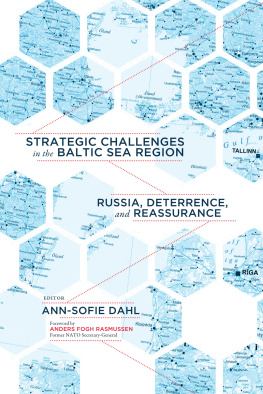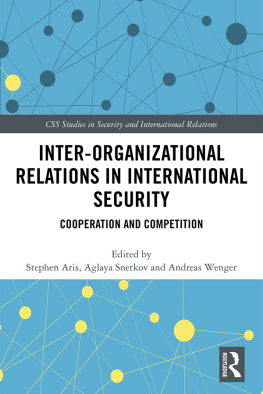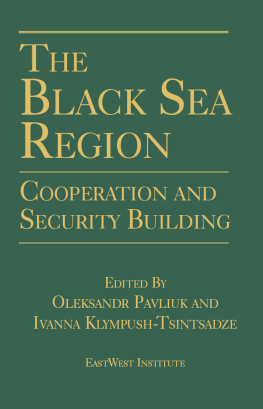Building
Security in
the New States
of Eurasia |
Also Available
BUILDING SECURITY IN EUROPE'S NEW BORDERLANDS
Subregional Cooperation in the Wider Europe
Edited by
Renata Dwan
A project of the EastWest Institute
The EastWest Institute is an independent, not-for-profit organization working to defuse tensions and conflicts that threaten geopolitical stability while promoting democracy, free enterprise, and prosperity in Central and Eastern Europe, Russia, and other states of Eurasia. The EastWest Institute operates through a network of affiliated centers, including New York, Prague, Moscow, Kyiv, Kosice, and Brussels, and was formerly known as the Institute for EastWest Studies.
For more information, please contact us at:
EastWest Institute
700 Broadway, Second Floor
New York, NY 10003
Tel (212) 824-4100, Fax (212) 824-4149
Website: http:/www.iews.org
E-mail: iews@iews.org
First published 2000 by M.E. Sharpe
Published 2015 by Routledge
2 Park Square, Milton Park, Abingdon, Oxon 0X14 4RN
711 Third Avenue, New York, NY 10017, USA
Routledge is an imprint of the Taylor & Francis Group, an informa business
Copyright 2000 Taylor & Francis. All rights reserved.
No part of this book may be reprinted or reproduced or utilised in any form or by any electronic, mechanical, or other means, now known or hereafter invented, including photocopying and recording, or in any information storage or retrieval system, without permission in writing from the publishers.
Notices
No responsibility is assumed by the publisher for any injury and/or damage to persons or property as a matter of products liability, negligence or otherwise, or from any use of operation of any methods, products, instructions or ideas contained in the material herein.
Practitioners and researchers must always rely on their own experience and knowledge in evaluating and using any information, methods, compounds, or experiments described herein. In using such information or methods they should be mindful of their own safety and the safety of others, including parties for whom they have a professional responsibility.
Product or corporate names may be trademarks or registered trademarks, and are used only for identification and explanation without intent to infringe.
Library of Congress Cataloging-in-Publication Data
Building security in the new states of Eurasia : subregional cooperation in the former Soviet space/edited by Renata Dwan and Oleksandr Pavliuk.
p. cm.
Includes bibliographical references (p.) and index.
ISBN 0-7656-0532-5 (alk. paper)
1. Former Soviet republicsEconomic policy. 2. Former Soviet republicsForeign economics relations. 3. Economic securityFormer Soviet republics. 4. Former Soviet republicsEconomic integration. I. Dwan, Renata. II. Pavliuk, Oleksandr. III. EastWest Institute (New York, N.Y.)
HC336.27.B85 2000
337.T47dc21 |
00029167 |
ISBN 13: 9780765605320 (hbk)
This volume represents the third and final publication of a three-year research and policy evaluation project undertaken in 1996 by the EastWest Institute. The goals of the project were to explore emerging cooperative processes among groups of states in the new Europe; analyze the contribution that this form of cooperation can make to security and stability in postCold War Europe; and assess the factors that influence its development. Subregional cooperation is the term that has been used to describe this phenomenon, reflecting the geographical scope and substantive concerns of these initiatives. Examination of the policies of international organizations towards subregional cooperation and, where appropriate, recommendations to those organizations, were important aims of the project. The Carnegie Corporation of New York funded the project generously throughout, for which the EastWest Institute is deeply grateful.
An enormous number and variety of people have been involved over the lifetime of the project. Seminars and meetings throughout Europe brought together academics, policymakers, officials of international organizations, and representatives of non-governmental organizations to exchange information and ideas on subregional processes in specific areas of the continent. These interactions helped generate interest and enthusiasm for Europes growing subregional dimension, and provided the scholars involved in the project with a unique opportunity to encounter policy at the practical level. Policymakers, in turn, benefited from the ideas and analyses of the academic community. The openness with which individuals and organizations shared their knowledge was a vital component of the project. The achievement of the project can be measured in the growing academic and policy interest in subregionalism in Europe and the encouraging steps that have been taken towards the development of national and international policies towards subregional cooperation.
The project was guided throughout by an international Steering Board, whose members occupy senior national and international positions, and who served in their personal capacities on the Board under the splendid leadership of Ambassador Anders Bjurner of Sweden. This Steering Board provided dynamic guidance for the project and was the single most important ingredient in its success. The EastWest Institute would like to express its gratitude to all members of the Board for their dedication and support.
The production of this third and final book has been a transatlantic, trans-European endeavor. The editors would like to thank the contributing authors for their efforts and commitment, and Dag Hartelius for his support, especially in the early stages of the book. Teresa Lawson, the technical editor, was indefatigable in her patience and good humor. Natasha Randall and Scott Tennant were responsible for preparing the final text for publication. All the above notwithstanding, the contents of the book remain the responsibility of the editors and the authors, and do not necessarily reflect the views of the EastWest Institute Subregional Project or the Carnegie Corporation of New York.
Renata Dwan
Oleksandr Pavliuk


